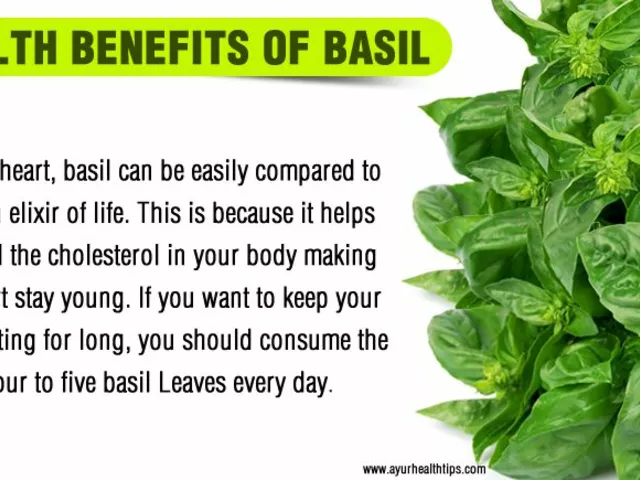Nasal Spray Selector
Select Your Symptoms
Age Group
Preference
Price Sensitivity
Recommended Nasal Spray
When you’re battling seasonal sneezes, a reliable nasal spray can feel like a lifesaver. Nasonex nasal spray is a favorite, but is it truly the best option for you? This guide pits Nasonex against the most common over‑the‑counter corticosteroid sprays, breaking down effectiveness, side‑effects, price, and ease of use so you can make an informed choice.
Key Takeaways
- Nasonex (mometasone furoate) offers strong anti‑inflammatory power with a low systemic absorption rate.
- Flonase (fluticasone propionate) is the most widely available OTC spray and works well for mild‑to‑moderate symptoms.
- Rhinocort (budesonide) is a good budget‑friendly pick for children and adults alike.
- Nasacort (triamcinolone acetonide) provides a fast onset but may cause more local irritation.
- Beclomethasone dipropionate is less popular today but still useful for patients who prefer a twice‑daily regimen.
Understanding the Core Players
First, let’s define the main compounds and why they matter.
Nasonex is a prescription nasal spray that contains mometasone furoate, a potent glucocorticoid designed to reduce nasal inflammation with minimal systemic absorption.
Flonase delivers fluticasone propionate, another synthetic corticosteroid that has been on the market for decades and is available without a prescription in many countries.
Rhinocort uses budesonide, a steroid known for its safety profile in children as young as two years old.
Nasacort contains triamcinolone acetonide, a medium‑strength steroid that often provides quicker symptom relief.
Beclomethasone dipropionate is an older corticosteroid that still appears in some generic nasal sprays, offering a twice‑daily dosing schedule for steady control.
Decision Criteria: What to Look For
- Potency & onset: How quickly does the spray start working, and how strong is its anti‑inflammatory action?
- Age suitability: Is the product safe for children, teenagers, or only adults?
- Prescription vs. OTC: Do you need a doctor’s note or can you just walk into the pharmacy?
- Price & insurance coverage: Monthly cost, co‑pay options, and availability of generics.
- Side‑effect profile: Local irritation, nosebleeds, or potential systemic effects.
- Dosage convenience: Once‑daily versus twice‑daily sprays.
Side‑by‑Side Comparison Table
| Attribute | Nasonex (Mometasone) | Flonase (Fluticasone) | Rhinocort (Budesonide) | Nasacort (Triamcinolone) | Beclomethasone Dipropionate |
|---|---|---|---|---|---|
| Prescription? | Yes (U.S.) | No (OTC) | No (OTC) | No (OTC) | Varies (often prescription) |
| Typical Dose | 2 sprays/nostril once daily | 2 sprays/nostril once daily | 1‑2 sprays/nostril once daily | 2 sprays/nostril once daily | 2 sprays/nostril twice daily |
| Age Minimum | 12years (some formulations 2years) | 4years | 2years | 2years | 6years |
| Onset of Relief | 24‑48hrs (full effect 5‑7days) | 24‑48hrs (full effect 5‑7days) | 24‑48hrs | 12‑24hrs (fastest) | 48‑72hrs |
| Systemic Absorption (per FDA) | ~0.5% of dose | ~0.5% of dose | ~0.3% of dose | ~0.6% of dose | ~0.7% of dose |
| Common Side‑effects | Nose irritation, mild headache | Nosebleeds, throat irritation | Dryness, occasional nosebleeds | Burning sensation, possible epistaxis | Throat irritation, taste change |
| Average Monthly Cost (US) | $40‑$55 (brand); $20‑$30 (generic) | $15‑$20 (OTC) | $12‑$18 (OTC) | $13‑$19 (OTC) | $25‑$35 (generic) |

Best‑Fit Scenarios
Choose Nasonex if: you need a prescription‑only option because your insurance prefers it, you have moderate‑to‑severe allergic rhinitis, and you’re comfortable with a once‑daily regimen.
Opt for Flonase when: you want an easy‑to‑find OTC spray, you’re treating mild symptoms, or you prefer a product with a long‑standing safety record.
Rhinocort shines for: families with young children; its low systemic absorption makes pediatric use reassuring.
Reach for Nasacort if: fast relief is a priority, even if you might experience a bit more local irritation.
Consider Beclomethasone dipropionate when: a twice‑daily schedule fits your routine and you’re looking for an alternative that isn’t as commonly stocked.
Potential Pitfalls & How to Avoid Them
- Over‑use: Spraying more than prescribed won’t speed relief and can raise the risk of nosebleeds. Stick to the recommended dose.
- Improper technique: Point the nozzle slightly outward, not straight up, to keep the spray on the nasal lining and avoid throat irritation.
- Ignoring onset time: Expect full benefits after about a week. If you quit early, you might think the spray doesn’t work.
- Allergic reactions to the propellant: Rare, but if you notice swelling or rash beyond typical irritation, stop and consult a clinician.
Quick FAQ for Busy Readers
Frequently Asked Questions
Can I use Nasonex and an OTC spray together?
Generally no. Combining two steroid sprays can increase side‑effects without added benefit. If your symptoms are uncontrolled, talk to a doctor about stepping up the dose or switching products.
Is Nasonex safe for long‑term use?
Yes, studies show that daily use for years does not significantly raise systemic cortisol levels because of its low absorption. Regular check‑ups are still advisable.
Which spray works best for kids?
Rhinocort (budesonide) is FDA‑approved for children as young as two and has a very gentle side‑effect profile, making it the top pediatric pick.
How do I know if my nasal spray is expired?
Check the expiration date on the packaging. Even if the bottle looks fine, potency drops after that date, reducing effectiveness.
What should I do if I get a nosebleed after spraying?
Tilt your head forward, pinch the soft part of the nose for 5‑10 minutes, and avoid blowing your nose for a few hours. If bleeding recurs, discontinue the spray and see a physician.
Bottom Line: Picking the Right Spray for You
The best choice hinges on three personal factors: severity of symptoms, budget, and whether you need a prescription. Nasonex delivers high potency with once‑daily convenience, perfect for chronic sufferers willing to go through a doctor’s office. For occasional sniffles or family use, Flonase, Rhinocort, and Nasacort offer solid OTC alternatives at lower price points.
Keep the comparison table handy, match the criteria that matter most to you, and don’t forget proper spray technique. With the right nasal spray, you’ll breathe easier and get back to living your life-no more constantly reaching for tissues.






